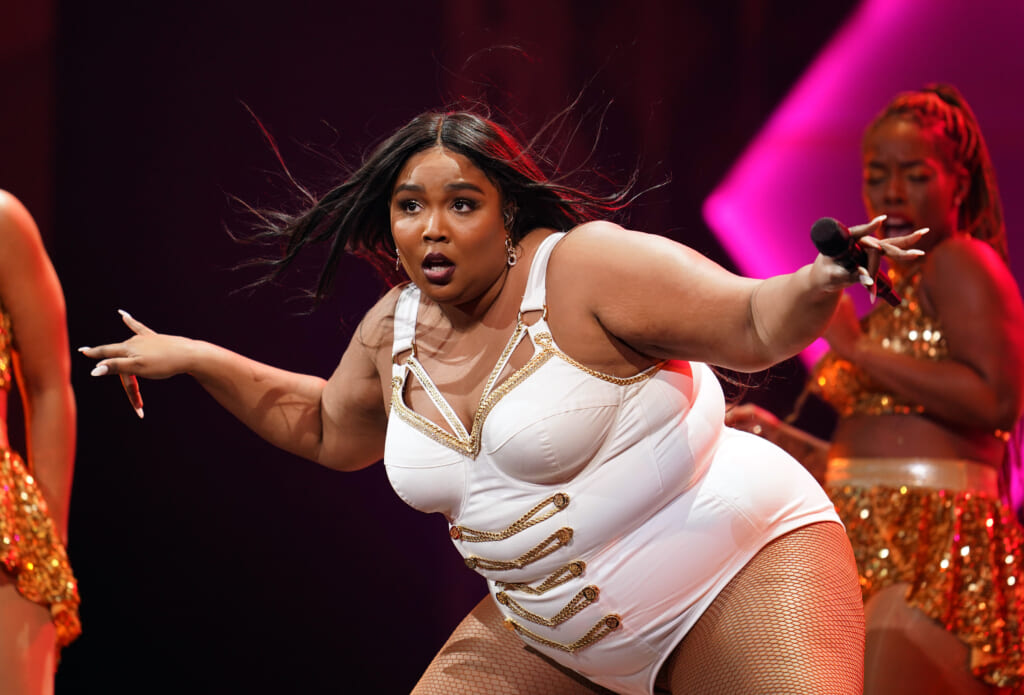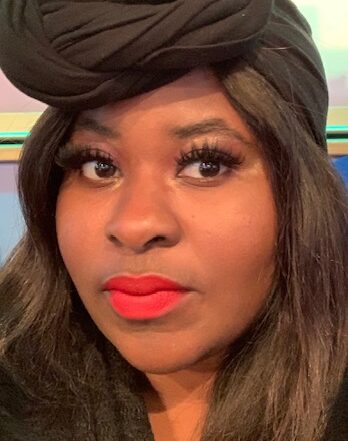Lizzo reminds us no matter how much we love ourselves, it’s no match for misogynoir
OPINION: Lizzo’s message and music are in some ways simply about affirming and reaffirming herself all the time, against the projection that the outside world would otherwise have her believe
I’ve loved Lizzo since the moment she came onto the scene. It wasn’t just her multifaceted musical talent, or her ability to appeal to a varied audience; it wasn’t just her undying dedication to her fans, or her positive self-image and message for women, regardless of appearance. It was all these things and more. She is, in essence, the complete package, and her breakthrough banger, “Truth Hurts,” indeed affirmed she was “100% that bitch.”
It’s exactly that type of unabashed confidence and career success, especially from a bigger, Black woman, that so many people take issue with. So as I scrolled upon a teary-eyed video of Lizzo before putting my phone away and going to bed a few nights ago, I wanted to wonder why. Sadly, it doesn’t really require a stretch of the imagination. I know all too well the kinds of things that can cause a Black woman to cry, be it in private or publicly.
I want to applaud Lizzo for her bravery and courage in being candid and open about what she was feeling and experiencing in that moment. I believe that Lizzo has genuine self-love and confidence. Yet the emotional video Lizzo posted the other day underscores this: that Lizzo, an icon of unabashed, female empowerment made a song called “Rumors,” explicitly calling out haters, and was then brought to tears on the basis of hate-filled comments by the very same kinds of people she made a song about. That narrative arc, while ironic, is also an extremely sad commentary on our society.
Part of me wonders whether Lizzo’s message and music are in some ways simply about affirming and reaffirming herself all the time, against the projection that the outside world would otherwise have her believe. Positive affirmations indeed can serve as a powerful shield or a form of prayer. But, no matter how much we may express love for ourselves, not matter how much love or praise I, or anyone else may laud upon Lizzo — or anybody for that matter — it’s sometimes no match for the vitriol that some still choose to espouse, in particular the myopic brand of misogynoir that’s often directed at Black women.
From the moment we are born, we are consistently fed messages — both overtly and covertly about societal acceptable standards of beauty. What’s “attractive,” “healthy,” or “sexy.” Fat, many would like us to feel, is none of the above.
Yet Lizzo and other artists and forebears of the body positive movement have pushed back against that dishonest notion. There’s literally no reason that anyone should take issue with the fact that someone chooses to celebrate and love their body. Yet, some people become so pressed when someone, who they presume should be ashamed or humbled, is instead confident and self-assured.
Couple-in tremendous success, talent or wealth, and it’s simply more fuel for the metaphorical fire. We know this, and they know it, too. And, we all of course know the age-old adage that “misery loves company,” which is clearly the genesis of much, if not most, of the derogatory commentary we see and experience, particularly online. While I’m certain it doesn’t compare to the level of or the extent of what was sent Lizzo’s way, I’ve received my own fair share of hate mail and messages. It’s not lost on me that this article will likely garner more.

But fat-shaming and fatphobia, just like sexism and racism, aren’t topics that only pervade the public space. I’ve received criticism and mean-spirited comments about my looks from members of my own family, or former friends or acquaintances, and I know I’m not unique in that regard. But regardless of whether these comments come from close personal connections or are the result of an anonymous troll, publicly piling on, the truth is that anything said negatively by one person about another, says a lot more about the former than it does the latter.
We all have an innate understanding of how anxieties around appearances work, because we all have them, whether we admit to them or not. And it’s only the most cowardly and insecure among us who would actually use those issues as insults to try and cut someone else down.
It’s the type of damaging rhetoric designed to break one’s spirit, and it’s no less abusive or insidious than any other type of ism or phobia. Words, in this case, are no less hurtful or violent than weapons. So, I think it would behoove all of us to reconsider our relationship to our own self-image, and to also reflect on how we look upon, judge and speak about others. It’s well past time that we interrogate the societal conditions and “norms” that have shaped our beliefs around our bodies. Because beauty really is in the eye of the beholder.
And as far as Lizzo goes, she’s a beautiful being, whose work is supreme; she minds her business all while doing her thing, and some of y’all seriously need to look into doing the same.

Thameka Thompson has a B.A in African American Studies from Yale University. Based in the New York/New Jersey area, she is a freelance writer, and owns a spiritual practice.
Have you subscribed to theGrio’s “Dear Culture” podcast? Download our newest episodes now!
TheGrio is now on Apple TV, Amazon Fire and Roku. Download theGrio.com today!
The post Lizzo reminds us no matter how much we love ourselves, it’s no match for misogynoir appeared first on TheGrio.
from TheGrio https://ift.tt/3katOcs

No comments: